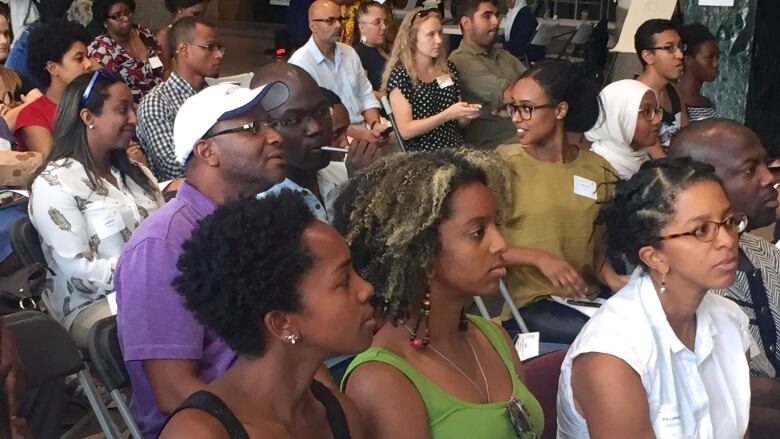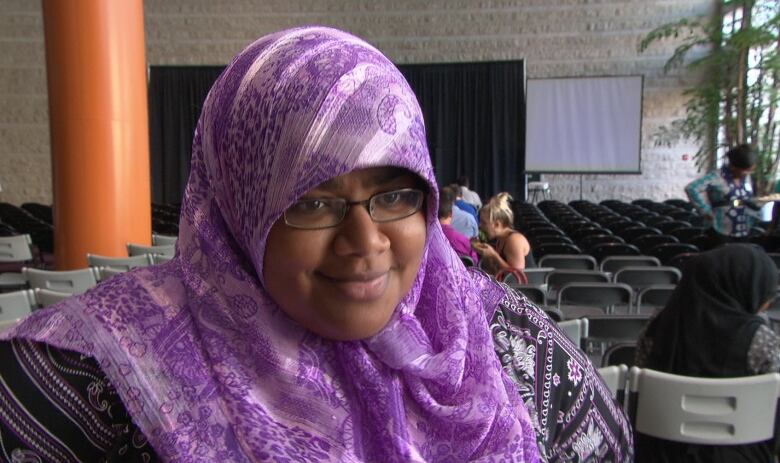Racism forum on the black experience in Ottawa draws big crowd
Forum draws 250 people to discuss and find solutions to racism experienced by black people in Ottawa

A capacity crowd gathered for a forumon Monday evening aboutthe overt and subtle waysblack people experience racism in Ottawa, and to discusshow to change that.
The event, organized by the City for All Women Initiative and the Ottawa Local Immigration Partnership,was in the works even before AbdirahmanAbdidied after a confrontation with police in late July.
ChelbyDaiglesaid people have been experiencing racism in policing, hiring practices, the school systemand society generallyfor decades.
She and other organizers saw momentuminthe Black Lives Matter movement in the United States and in Torontoas a way to get people talking about the issuelocally.

'Come together'
"But we neededto take advantage of it in a way that's not so reactionary in terms of rallies and marches. It has to be aboutplanning and organizing and more of a long-term, sustained effort to take action onthese issues in our city," Daigle said.
So, sheurged people at the forum to get to know one another and share experiences.
Ottawa's black community has about 60,000 people, she said, and come fromdifferent backgrounds. Some are Canadians, others areimmigrants. Some trace their roots to Somalia and Burundi inAfrica, while others are fromHaiti and Jamaica in theCaribbean.
"We actually have the numbers to be a political influence,"Daigletold CBC. "We just often have not come togetherenough to do it."
Some deny racism exists in Canada
Priscilla Jabouindecided to spend a summery Monday evening insideOttawa's city hall because she said it was time for people to finally start talking.
For too long,people have been shrugging off small incidents, she said, ordenyingthat racism exists in acountry that prides itself on being multicultural.
She sees subtle things, whether it's a black person who's served second when he or she was first in line, or an insensitive comment.
"There are lots of assumptions, sometimes, that we're not from Canada. I'm born and raised here. It's the only country I know," said Jabouin.
Fatimah Jackson-Best, meanwhile, has been surprised by overt racism. She said she has heardracial slurs, including the 'n'word, more than oncesince moving to Ottawa recently.
"Honestly, I hadn't heard it used in years," said Jackson-Best. "I was so taken aback."
More race-based data needed
As for how black people might be treated differently by institutions, one key will be to collect morerace-based data to turn anecdotes into something measurable,saidHindiaMohamoud, directorof the Ottawa Local Immigration Partnership.
That includes statisticsabout how black people fare ineducation and health, their access to social services,how many people take onleadership roles, and their interactions with police and the justice system.
Simply getting the discussion started is abig step, said Mohamoud.
"We've learned that the biggest hurdle we have in our effortsto buildequity and inclusion in our community is a denial that racism even exists," Mohamoud said.












_(720p).jpg)


 OFFICIAL HD MUSIC VIDEO.jpg)
.jpg)



























































































